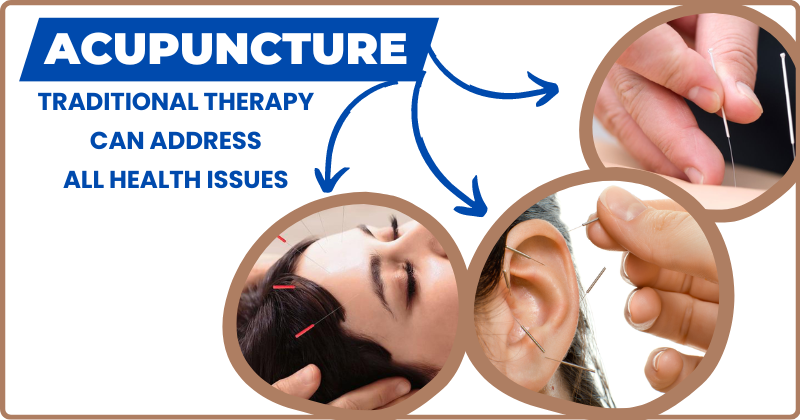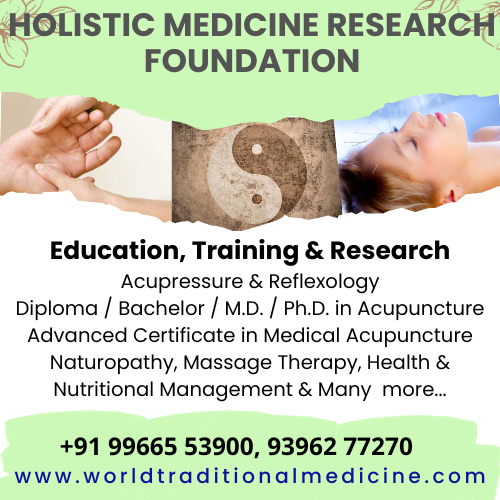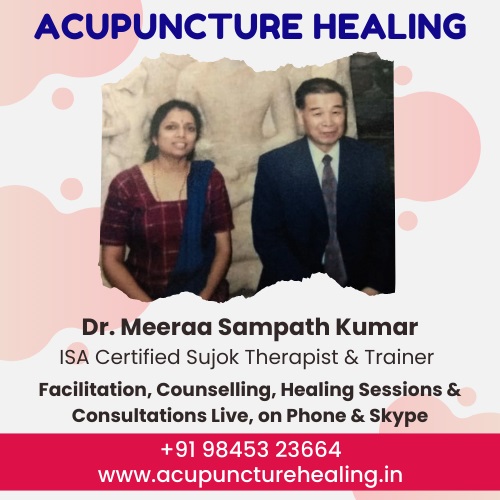Alternative Therapies
- Alternative Medicine
- Access Bars
- Access Body Processes
- Access Consciousness
- Access Energetic Faclift
- Acupressure
- Acupuncture
- Akashic Records
- Ancient Magnetism
- Angel Healing
- Aromatherapy
- Aura Reading
- Ayurveda
- Bach Flower Remedies
- Blueprint Numerology
- Breathwork
- Chakra Healing
- Cosmetic Acupuncture
- Cosmic Connection
- Crystal Healing
- Cupping Therapy
- Divine Healing Hands
- Distance Healing
- Emotional Freedom Technique (EFT)
- Energy Healing
- Energy Medicine
- Ergonomics
- Family Constellation
- Face Reading
- Fengshui
- Gaiadon Heart
- Geomancy
- Heal Your Life
- Graphology
- Holistic Solutions
- Holy Fire Reiki
- Homeopathy
- Ho'oponopono
- Humkara with Haleem
- Hypnotherapy
- Inner Child Therapy
- Intuitive Reading
- Jikiden Reiki
- Jin Shin Jyutsu
- Karuna Reiki
- Karmic Healing
- Lama Fera
- Lenormand Cards
- Light Language Healing
- Law of Attraction
- Manual Therapy
- Matrix Reimprinting
- Metaphor Therapy
- Meditation
- Mediumship
- Melchizedek Method
- Merlin Trinity Healing
- Merkaba Healing
- Money Reiki
- Motivational Counseling
- Mudra Healing
- Nakshatra Energies
- Naturopathy
- Neuro Linguistic Programming (NLP)
- Numerology
- Oracle Cards
- Panchakarma (Ayurveda)
- Past Life Regression
- Pendulum Dowsing
- Physiotherapy
- Pranic Healing
- Pranic Psychotherapy
- Pythagorean Numerology
- Quantum Touch Healing
- Pyramids
- Redikall Healing
- Reiki
- Rudraksh
- Runes
- Soul Plan Reading
- Sound Healing
- Star Magic Healing
- Space Clearing
- Sujok therapy
- Tarot
- Tera MaiTM Seichem
- Tea Leaf Reading
- Theta Healing
- Twin Flame Healing
- Twin Hearts Meditation
- Unani Medicine
- Yoga
- Wicca
- Womb Healing
Diseases & Conditions
- Acne & Pimples
- Allergies
- Arthritis
- Asthma
- Behavioural Disorders
- Cancer
- Dandruff
- Diabetes
- Emotional Problems
- Gallstones
- Gastritis
- Hairloss
- Heart Diseases
- Hormonal Problems
- Hypertension
- Immune Disorders
- Infections
- Infertility
- Jaundice
- Kidney Disorders
- Liver Disorders
- Menstrual Disorders
- Migraine
- Neck & Back Pain
- Obesity
- Osteoporosis
- Peptic Ulcer
- Prevention
- Prostate Problems
- Psoriasis
- Sexual Dysfunctions
- Sinusitis
- Sleep Disorders
- Skin Diseases
- Stress
- Thyroid Disorders
- Ulcerative Colitis
- Urinary Infections
General Wellness
Acupuncture Treatment in Mahim
Holistic health Care - Prakruti Swasthya Kendra

A Unit of Holistic Medicine Research Foundation - Asia's first and foremost ISO 9001:2008 certified pioneer research centre on Holistic Medicines - Prof. Dr. Deepak Rout (Gold Medalist)...

Acupuncture Healing - Dr. Meeraa Sampath Kumar

Dr. Meeraa Sampath Kumar is a certified holistic health practitioner and a pioneer in the field of Sujok Acupuncture in Karnataka. Highly trained and experienced, she constantly updates her training skills and knowledge in the field of Sujok Therapy and Onnuri medicine....


What is Acupuncture?
Acupuncture can be defined as the insertion of dry needles into the skin at specific locations called acupuncture points. Acupuncture is performed by certified practitioners and physicians to treat certain medical disorders. Depending on the training and experience of the practitioner and the problem being treated, acupuncture techniques may include electrical current through the needles (electro acupuncture) or heat (moxibustion) and pressure (acupressure).
Acupuncture began in China more than 2000 years ago. It is now practiced throughout the world, particularly in China, Korea and Japan. In the United States, acupuncture started gaining popularity in the early 1970s.
How Does Acupuncture Work?
The basic idea behind acupuncture, according to ancient theory, is that energy flows within the human body and can be stimulated to create balance and health. The energy flow (or vital force)—called qi and pronounced “chee”—moves throughout the body along 12 main channels known as meridians. These meridians represent the major organs and functions of the body although they do not follow the exact pathways of nerves or blood flow.
The goal of acupuncture is to correct imbalances of flow and restore health through stimulation, generally by inserting needles through the skin at points along the meridians of the body. Current acupuncture information lists up to 400 different acupuncture points for various health problems. Scientists have attempted to explain the actual physical effects of acupuncture on the human body. Some researchers suggest that pain relief happens when acupuncture needles stimulate nerves. Another well accepted theory is that acupuncture releases pain-relieving chemicals, such as endorphins and serotonin.
Acupuncture may also be effective because it targets painful tender points, sometimes called trigger points. Additionally, acupuncture may decrease pain-causing inflammation by stimulating the body’s pituitary gland to release cortisol, a hormone that is known to reduce inflammation. Although the exact manner in which acupuncture works is unknown, the treatment appears helpful for certain medical illnesses in certain people at certain times.
Conditions
Acupuncture can be helpful in maintaining good health and in treating patients with a wide range of health problems. Acupuncture may be used alone or in combination with other complementary or conventional medicine treatments.
Acupuncture can be used to treat a number of condition and health problems, including:
Side Effects of Cancer Treatment — Acupuncture can help ease the nausea associated with chemotherapy, increase the immune response, relieve pain and improve energy levels.
Headache— Acupuncture can help reduce the severity and frequency of chronic headaches, including tension headaches and migraines.
Chronic Neck and Back Pain — Acupuncture may be helpful in relieving chronic pain caused by spinal stenisis, disc herniation etc.
Women's Reproductive Health Issues — Acupuncture can be used to enhance fertility, relieve symptoms of premenstrual syndrome (PMS) and minimize bothersome symptoms of menopause, including mood changes, hot flashes and insomnia
Chronic Fatigue Syndrome — Chronic fatigue syndrome (CFS) is a disorder that causes debilitating fatigue, including exhaustion and reduced stamina, neurological problems, and a variety of flu-like symptoms.
Chinese medicine considers symptoms of fatigue and exhaustion as originating from weakened organs. Acupuncture may help to revive and stimulate the affected organs from their depleted states.
Fibromyalgia — Fibromyalgia is a chronic pain disorder characterized by fatigue and widespread pain in the fibrous tissues of the muscles, ligaments and tendons. Acupuncture may help relieve the pain associated with this condition.
Asthma — Research in the past decade has shown that acupuncture can be very effective in alleviating the symptoms of respiratory diseases, including asthma. It may also reduce the frequency and intensity of asthma attacks.
Sports Injuries — Acupuncture can be used to treat various sports and repetitive stress injuries.
Gastrointestinal Disorders — Acupuncture may be helpful in relieving some of the discomfort caused by gastrointestinal disorders, including chronic liver disease, irritable bowel syndrome, and inflammatory bowel movement.




